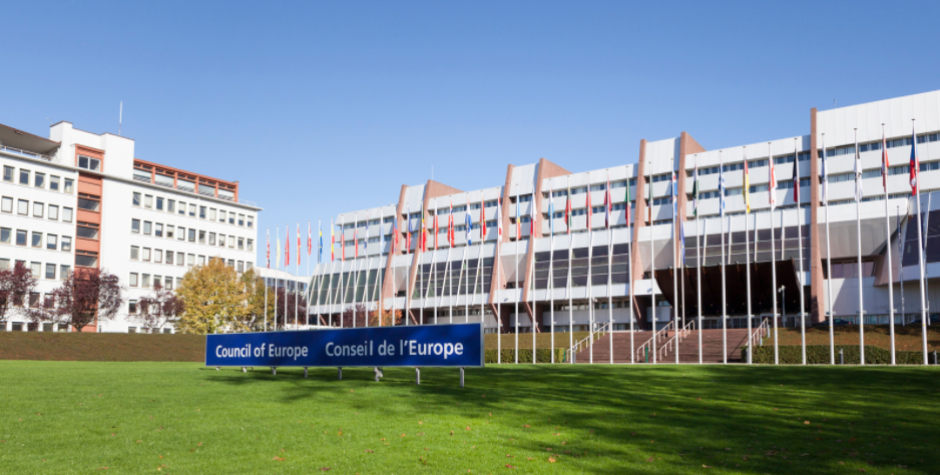

Will the Council of Europe support the decriminalization of prostitution?
CoE:decriminalization of prostitution?
On October 3, the Assembly of the Council of Europe will vote on a draft Resolution recommending the decriminalization and normalization of prostitution, entitled “Protecting the human rights and improving the lives of sex workers and victims of sexual exploitation”. This parliamentary debate is yet another episode in a controversy pitting those in favor of decriminalizing prostitution (as in Belgium) against those who want to see it abolished by penalizing clients and pimps (as in France and Sweden).
This draft Resolution by the Council of Europe runs counter to the action of two other European institutions: the European Parliament, which adopted an abolitionist Resolution on September 14, 2023, and the European Court of Human Rights (ECHR), which handed down a judgment on July 25, 2024. The case had been referred to it by 56 associations calling for condemnation of the model penalizing clients in France. The ECHR rejected the petition, allowing France to retain its abolitionist model, and inflicting a setback on the prostitution lobby.
This controversy is also being played out at the United Nations (UN). The figurehead for the liberalization of prostitution is Tlaleng Mofokeng, a UN health expert who describes herself as a “sex worker”. In March 2024, she published a “Guide on the Human Rights of Sex Workers”. One of the aims of this text was to pre-empt and prevent the publication of an abolitionist report, entitled “Prostitution and violence against women and girls”, presented by the Special Rapporteur on Violence against Women and Girls, Reem Alsalem. While the Assembly of the Council of Europe avails itself of Tlaleng Mofokeng's authority and ignores Reem Alsalem, the latter has issued a statement calling on the Council of Europe to reject the draft Resolution, as she considers it “dangerous for women”.
This controversy revolves around three premises on which the discourse in favor of the liberalization of prostitution is based. These are economic, philosophical and sociological:
- Sex is a “service” like any other
This idea refers back to the economic argument and assumes that prostitution is “sexual service” and a profession that can be exercised with dignity, in the words of the Resolution, and is a way out of poverty. Ms. Mofokeng's “Guide” uses the terms “industry” and “chain of service” to refer to pimping in a supposedly neutral way.
This assertion is based on an ultra-liberal conception of the human being that transforms people, and in particular women's sexuality, into a mere commodity that can be rented out. It runs directly counter to the dignity on which human rights are founded, notably the United Nations Convention for the Suppression of the Traffic in Persons and of the Exploitation of the Prostitution of Others (1949). This recognizes that “prostitution and the accompanying evil of the traffic in persons for the purpose of prostitution are incompatible with the dignity and worth of the human person and endanger the welfare of the individual, the family and the community”.
- Prostituted persons are said to consent, barring exceptions
This idea refers to the philosophical argument that prostitution is an expression of the “agency”, “bodily autonomy” and “self-determination” of prostituted persons, in the words of the Resolution, i.e. the right to control one's own body. According to this idea, the financial transaction would suffice to establish the prostituted person's consent, making prostitution a consensual sexual relationship between adults. With regard to forced prostitution, the draft Resolution does not really condemn it, but only invites States “to take preventive measures to discourage forced sex work”.
This statement is totally hypocritical, as studies show that prostitution is almost systematically subjugated, forced by violence, manipulation, poverty or drugs, and that it mainly concerns poor women of foreign origin, and more and more minors. Thus, justifying prostitution in the name of the “right to control one's own body” in fact justifies the right to control the bodies of prostituted persons.
Reducing consent to a financial transaction is tantamount to denying the vulnerability of the victims of prostitution, and the phenomena of submission and dependence. This is why national and European law stipulates that the consent of a victim of trafficking does not have to be taken into account when it is obtained through the offer or acceptance of payments or benefits.
- It is the criminalization of prostitution that would stigmatize this activity and be criminogenic, and not prostitution per se
This idea refers back to the sociological argument that it is the criminal law that causes crime, since the condemnation of prostitution is based on an illegitimate moral consideration, discriminates against prostituted persons, makes them vulnerable and reduces their financial resources. Even the regulation of prostitution, as practiced in Germany, would be harmful according to the “Guide”, as it would impose excessively strict conditions on access to this activity. According to this idea, decriminalizing prostitution would suffice to clean up the profession and improve the situation of prostitutes. The draft Resolution therefore calls on States to follow Belgium's “example” and normalize prostitution by combating “discrimination”, “stigmatisation and bias” against prostituted persons.
Yet in the Netherlands and Belgium, where prostitution has been legalized, the number of victims of sexual exploitation continues to rise. There are 36 times more prostitutes in Germany than in Sweden per 1,000 inhabitants, proving that the abolitionist model works. Moreover, decriminalization runs counter to international law, which clearly condemns pimping as a form of human trafficking (Palermo Protocol, 2000), just as it condemns the purchase of sexual acts. The same is true of the Council of Europe Convention on Action against Trafficking in Human Beings, adopted in Warsaw in 2005, which encourages States to criminalize clients in order to discourage demand, while recognizing that the person concerned is a “victim of trafficking” in human beings.
The trap of distinguishing between “sex work” and prostitution
The key concept that sums up and contains these three premises is “sex work”; Tlaleng Mofokeng's slogan is precisely “sex work is work”. This slogan was introduced to wrongly distinguish between voluntary prostitution, which would be respectable, and forced prostitution, which alone would be reprehensible. It is precisely this misleading distinction that the Council of Europe's draft resolution disseminates, right down to its title. Initially entitled “The reintegration of persons trapped in prostitution and human trafficking survivors”, it has been amended to read “Protecting the human rights and improving the lives of sex workers and victims of sexual exploitation”. The text of the Resolution peremptorily underlines that “sex work should not be conflated with trafficking”. Acceptance of this notion of “sex work” implies acceptance of its distinction from “forced prostitution”, and therefore of its three premises. Admittedly, the draft resolution also contains a number of correct provisions, but these serve primarily to gain acceptance for the notion of “sex work”.
But these arguments are neither new, nor specific to prostitution. The same arguments are used to support the legalization of surrogate motherhood, whose promoters also claim to distinguish between an ethical one and a forced one. Behind this rhetoric lies the same reduction of morality to consent, the same commodification of the human body, the same lobbies, and in both cases, a huge market that the legalization of these practices allow to openly exploit. According to the International Labour Organization, prostitution generates over $170 billion in profits every year, and feeds the pornography industry.
A textbook case of international lobbying
Finally, the controversy surrounding the legalization of prostitution is a textbook case of international lobbying. A number of large foundations play a central role in encouraging the creation of pro-prostitution organisations and financing them. They are the ones who have intervened at the European Court of Justice and been heard by the Council of Europe in support of prostitution. This is the case, for example, of the European Sex Work Alliance (ESWA) which, like others, is funded by Open Society. These same foundations also fund certain UN experts and special rapporteurs, as demonstrated in a 2021 ECLJ report (The Financing UN experts). This is notably the case for Tlaleng Mofokeng, who received $200,000 in 2020 and a further $75,000 in 2023 from Open Society. The latter payment was intended to finance her official report on drugs, in which she unsurprisingly recommends the decriminalization of drugs, on the grounds, among others, that “criminalizing the use and possession of drugs for personal use is likely to threaten health and well-being”... an argument also used for the decriminalization of prostitution.













